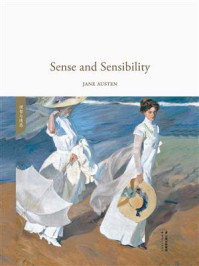




皮埃尔·居里(Pierre Curie,1859-1906),法国著名的物理学家,居里夫人的丈夫,也是“居里定律”的发现者。1903年,居里夫妇与天然放射性的发现者亨利·贝克勒尔共同获得了诺贝尔物理学奖。1906年4月19日,皮埃尔·居里在一场马车车祸中不幸遇难。
1894年,皮埃尔·居里结识了来法国求学的波兰籍女学生玛丽·斯克罗多夫斯卡(居里夫人婚前本名)。年轻的玛丽不仅漂亮迷人,而且聪颖过人,皮埃尔敬慕不已。当时的玛丽心系祖国波兰,她只想学成归国,多次拒绝皮埃尔的示爱,但皮埃尔并不灰心。同年玛丽回波兰度暑假,皮埃尔通过下文书信再次展开热烈攻势。最终,他赢得了玛丽的芳心,两人于1895年喜结连理。
August 10, 1894
Dear Marie,
Nothing could have given me greater pleasure that to get news of you. The prospect of remaining two months without hearing about you had been extremely disagreeable to me: that is to say, your little note was more than welcome.
I hope you are laying up a stock of good air and that you will come back to us in October. As for me, I think I shall not go anywhere; I shall stay in the country, where I spend the whole day in front of my open window or in the garden.
We have promised each other—haven’t we?—to be at least great friends. If you will only not change your mind! For there are no promises that are binding; such things cannot be ordered at will. It would be a fine thing, just the same, in which I hardly dare believe, to pass our lives near each other, hypnotized by our dreams: your patriotic dream, our humanitarian dream, and our scientific dream.
Of all those dreams the last is, I believe, the only legitimate one. I mean by that that we are powerless to change the social order and, even if we were not, we should not know what to do; in taking action, no matter in what direction, we should never be sure of not doing more harm than good, by retarding some inevitable evolution. From the scientific point of view, on the contrary, we may hope to do something; the ground is solider here, and any discovery that we may make, however small, will remain acquired knowledge.
See how it works out: it is agreed that we shall be great friends, but if you leave France in a year it would be an altogether too platonic friendship, that of two creatures who would never see each other again. Wouldn’t it be better for you to stay with me? I know that this question angers you, and that you don’t want to speak of it again—and then, too, I feel so thoroughly unworthy of you from every point of view.
I thought of asking your permission to meet you by chance in Fribourg. But you are staying there, unless I am mistaken, only one day, and on that day you will of course belong to our friends the Kovalskis.
Believe me your very devoted
Peirre Curie
亲爱的玛丽:
没有什么比收到你的消息更让我高兴的了。余下两月可能无从得知你的音讯,那样的光景真是令人恼火:也就是说,我一直翘首以盼你的来信。
我希望你正在储蓄清新的空气,在十月里回到我们这里来。至于我,我想我哪也不去,我会留在乡村,在我敞开的窗前或者花园中消磨一整天。
我们已彼此承诺至少要做好朋友,不是吗?只要你不改变心意!因为世上没有束缚人的允诺,这种事更是勉强不得。即使如此,如果我们生活彼此贴近,沉醉于我们的梦想——你的爱国梦,我们的人道主义梦,以及我们的科学梦,那该有多好。不过,我几乎不敢相信能够实现。
所有这些梦想中,我想,唯有最后一个是合乎情理的。我是说,我们无力改变社会秩序,即使能,我们也不知该如何做。无论我们朝何方采取行动,我们永远无法确定这样延缓无法避免的演变,究竟是否弊大于利。相反,从科学角度来看,我们希望有所作为。我们在知识方面的基础比较稳固,任何可能的发现,不管多么微不足道,都将成为研究成果。
你瞧,一切事是如何影响着的:我们已达成共识做好朋友,但如果你在一年内离开法国,那这种两人彼此再无重逢之日的友谊,未免太柏拉图式了。和我在一起岂不是更好?我知道这个问题会惹你生气,你也不想我再提此事——而且,从各个方面来看,我都觉得我完全配不上你。
我想征得你的允许,在弗里堡与你不期而遇。如果我没记错的话,你只在那逗留一天。那一天,你当然要和我们的朋友科瓦尔斯基一家在一起了。
请相信我对你完全忠诚
皮埃尔·居里
1894年8月10日
玛丽曾回忆初见皮埃尔时的情景:“当我走进房间时,皮埃尔·居里正站在阳台的一扇落地窗边。虽然他当时已经35岁了,但我依然感觉他很年轻。他的表情坦率自然,浑身散发出一抹超然洒脱的气质,我被他打动了。他的演讲,慢条斯理而又深思熟虑。他的质朴,以及他庄重而充满活力的笑容激发出无限的信心。”
1903年,诺贝尔委员会为表彰相关科学家对放射性现象的研究,为他们颁发物理学奖。但当时居里夫人仅仅被认为是皮埃尔的助手,她的名字起初甚至不在获奖名单中,委员会只想把奖项颁给法国知名物理学家亨利·贝克勒尔和居里夫人的丈夫皮埃尔·居里。皮埃尔坚持玛丽的贡献,并向上申诉,玛丽最终获得提名。
正当居里夫妇向新的科学高峰攀登之际,居里先生不幸因车祸罹难。居里夫人强忍悲痛,谢绝法国大学以居里遗孀身份领取国家抚恤金的建议,接替丈夫在巴黎大学物理学教授的职位(她也是有史以来第一位女教授),独立承担起两人未完成的科学志愿。经过四年努力,居里夫人提炼出纯氯化镭,并因该贡献再获1911年的诺贝尔化学奖。她是世界上第一位获得诺贝尔奖的女性,也是迄今唯一一位两次在不同领域里获得诺贝尔奖的科学家。
disagreeable [ˌdɪsəˈɡriːəbl]
a. 不合意的;令人不快的
hypnotize [ˈhɪpnətaɪz]
v. 使着迷
patriotic [ˌpætriˈɒtɪk]
a. 爱国的
humanitarian [hjuːˌmænɪˈteəriən]
a. 人道主义的;博爱的
legitimate [lɪˈdʒɪtɪmət]
a. 合理的;正当的
retard [rɪˈtɑːd]
v. 延迟;阻止
platonic [pləˈtɒnɪk]
a. 柏拉图(式)的
unworthy [ʌnˈwɜːði]
a. 不值得的;无价值的


